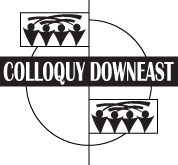Growing Up in Shakespeare’s World
| |||||||
Every culture defines adolescence differently at different times. It is a stage of human development that is neither purely biological nor cultural, but that morphs to fit each society’s dominant belief systems and institutions—its desires and anxieties. In this colloquy, we will explore the various ways that early modern English people imagined youth, and specifically adolescence, and how these ideas were circulating in some of the period’s most popular plays written by Shakespeare.
Medical writings, philosophical treatises on the ages of man, and parenting handbooks typically defined adolescence as a stage that stretched between the ages of 14 and 21, and sometimes 28. Most people, male and female, did not marry until the age of 26. How did age affect agency during this extended stretch of time between childhood and what was considered full adulthood? And what were the perceived differences between male and female adolescence?
Juliet is on the verge of seeing “the change of fourteen years” at the start of Romeo and Juliet, while Romeo is paralyzed by a kind of love-melancholy particular to adolescent males. In our discussion of this play, we’ll analyze how Shakespeare continues to code these star-crossed lovers as different in their cognitive, emotional, and physical responses to the same events and experiences.
The fourteen-year-old fraternal twins of Twelfth Night provide another exemplary case for investigating how age and gender conjoined to differentiate male and female adolescence. Many of the play’s comic turns hinge on how identical Viola is to Sebastian. And yet she and her brother respond very differently to the pressures of their new situation once they wash up on the shores of Illyria, and they face vastly unequal obstacles. We’ll consider how each twin moves through the play and toward eventual marriage.
We’ll finish by reading Shakespeare’s late tragicomedy, The Winter’s Tale, which explores the potential hazards of growing up. The tragic first part of the play has King Leontes irrationally accusing his pregnant wife Hermione of adultery with his best friend since childhood, Polixenes. By the end of act 3, his wife and seven-year-old son are dead of broken hearts, and Leontes has thrown his newborn daughter, Perdita, out of his kingdom. In the play’s final comic acts, we meet the now sixteen-year-old Perdita (raised by a Shepherd) and her beloved, Prince Florizel, son of Polixenes. We’ll explore how gender and social status impact their different negotiations of love and potential adulthood, and how the play’s multiple final reunions attempt to patch up the disruptions to growing up that Leontes’ anxious masculinity first wrought.
Caroline Bicks is Professor and Stephen E. King Chair in Literature at the University of Maine and is also on the faculty of The Bread Loaf School of English. She is the author of Cognition and Girlhood in Shakespeare’s World: Rethinking Female Adolescence (Cambridge University Press, 2021) and Midwiving Subjects in Shakespeare’s England (Ashgate, 2003); the co-editor of The History of British Women’s Writing, 1500–1610 (Palgrave, 2010); and the co-author of Shakespeare, Not Stirred: Cocktails for Your Everyday Dramas (Penguin, 2015). Her creative non-fiction has been featured in the Modern Love column of the New York Times, on National Public Radio, and in the show and book Afterbirth: Stories You Won’t Read in a Parenting Magazine.
Syllabus/Reading
Readings:
Although the Bedford/St. Martin’s Texts in Context editions are preferred for the context and notes they provide, I’m conscious that supply chain issues are making it increasingly difficult to acquire these versions in a timely and affordable manner. You should go ahead and read whatever editions of the three plays you are able to acquire easily and affordably.
Colloquy Schedule: Readings should be completed before each meeting
Week One: Please read the attached introduction to my recent book, Cognition and Girlhood in Shakespeare’s World, in preparation for the first meeting.
Week Two: Romeo and Juliet
Week Three: Twelfth Night
Week Four: The Winter’s Tale
▼ Registration
Registration
Bookings are now closed (or the colloquy has been cancelled)
We aren't currently accepting bookings for Growing Up in Shakespeare’s World.
If you are trying to pay for a colloquy that you've already attended or have questions about refunds, please contact our Treasurer to work out the details.
▲ Hide...
